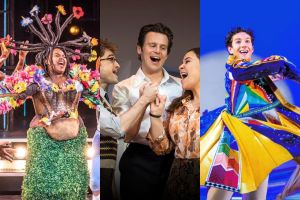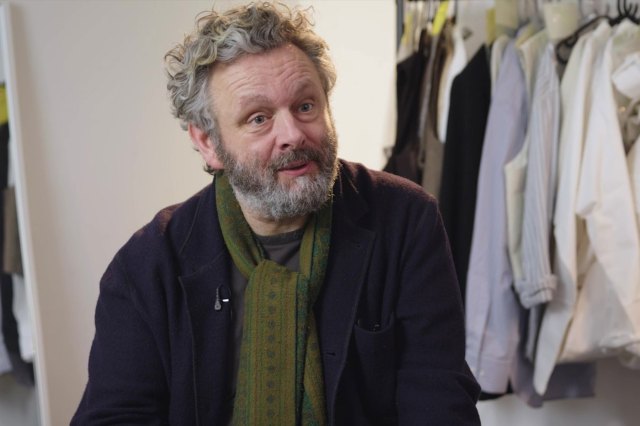Michael Coveney: Daldry and McKellen join the Paralympic Party
Danny Boyle‘s opening ceremony for the Olympic Games was always going to be a hard act to follow, but Stephen Daldry, overall producer of all four Olympic and Paralympic ceremonies, still had plenty of tricks up his sleeve for last night’s extravaganza.
Sir Ian had taken walk-on part on behalf of all those who couldn’t walk at all (“For those who can, please stand for the National Anthem,” intoned the announcer, followed by the beautiful Benjamin Britten arrangement). But this was a mere prelude to the meat of the show directed by Bradley Hemmings and Jenny Sealey of Graeae, the disabled actors company.
After two hours of athletes processing through the stadium and the official speeches – at 11.25pm, to be precise – Miranda was informed by McKellen that books are the engines of change, windows on the world, humanity in print.
An ethereal, baroque, Handelian interlude of soprano and trumpet, heralded the night sky filling with aerial athletes, including a wheelchair tennis player and a slow motion runner – here, at last, was Prospero’s masque – as Miranda broke into the bard: “How many goodly creatures, how beauteous mankind is; Oh brave new world, that has such people in it.”
McKellen couldn’t say it was new only to her, for this parade and statement of extraordinary grace and beauty among the Paralympians was a revelation to us all. And the scientific research theme – embracing Newtonian physics, the Higgs-Boson particle and the great particle accelerator at CERN – expressed the idea that there are no boundaries against which we cannot push, disabled or not.
Nicola Miles-Wildin as a perky, bleach-haired Miranda set sail on her journey to discover new worlds in a boat formed from a large upturned umbrella, encountering an illuminated whale and a flight of seagull books, arriving in a scientific maze of gravitational push and pull to the accompaniment of Michael Nyman’s plangent serial music in “The Draughtman’s Contract”.
Everyone in the stadium had been issued with an apple and was now instructed to bite into it: the Newtonian apple and the fruit of knowledge in one corporate mouthful, an amazing moment of simple, epic community theatre.
Then a surprise almost as big as the Queen turning at her desk to say “Good evening, Mr Bond”: a grungy street uprush of human rights demands starting with a noisy version of Ian Dury‘s caustic disability anthem, “Spasticus Autisticus.”
The giant Marc Quinn sculpture of the armless pregnant artist, Alison Lapper, was wheeled centre stage, and a legless Afghanistan war veteran flew into the stadium on a trip wire from the Orbit Tower 350 feet away. The flag was carried by the Under-22 wheelchair basketball team, the torch was lit.
By this time, McKellen was boogying like crazy, impervious to the choreography of anyone else, and gorgeous Beverley Knight, whose extreme beauty now seemed merely conventional, was claiming Jerry Herman’s gay anthem “I Am What I Am” from La cage aux folles on behalf of the different and unusual in mankind everywhere.
Every single Paralympian has his or her own story to tell. One of the most familiar over the past few days has been that of Martine Wright, the sister of my friend and plumber, Grant Wright, who lost both her legs in the tube bombings of July 2005. Since that disaster – she and the others sure took the hit for us all on that day – Martine has married her fiance, had a baby boy, learned how to fly and sky-dive and achieved a place in the women’s sit-down volleyball team in these Paralympics.
It’s an incredible story and it was very moving to see her in the middle of the Team GB – kitted out like astronauts in white jump suits with gold edgings – entering the stadium in a tumult of sound, chatting to Clare Balding, and looking as though she was about to party like there was no tomorrow.
I look forward to visiting the stadium myself next week for some of the games proper. I look forward to going back to the ordinary theatre, too. But I doubt if any of it will match last night’s television spectacular. It was, quite simply, the best, and a work of utter genius; with Stephen Hawking at its centre, literally so.












